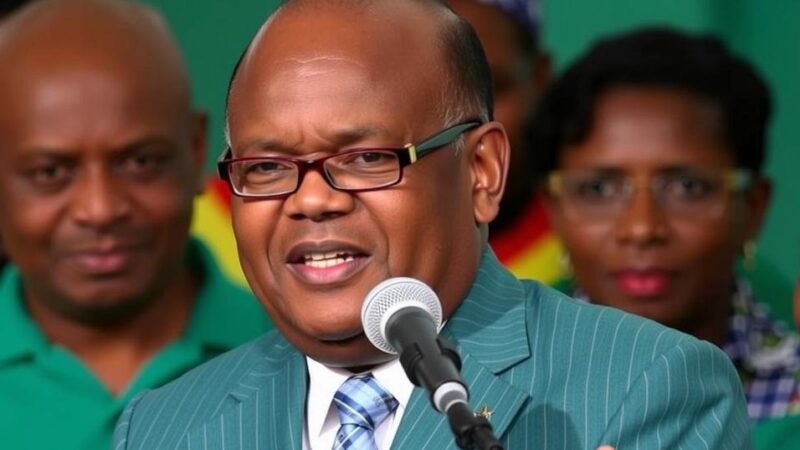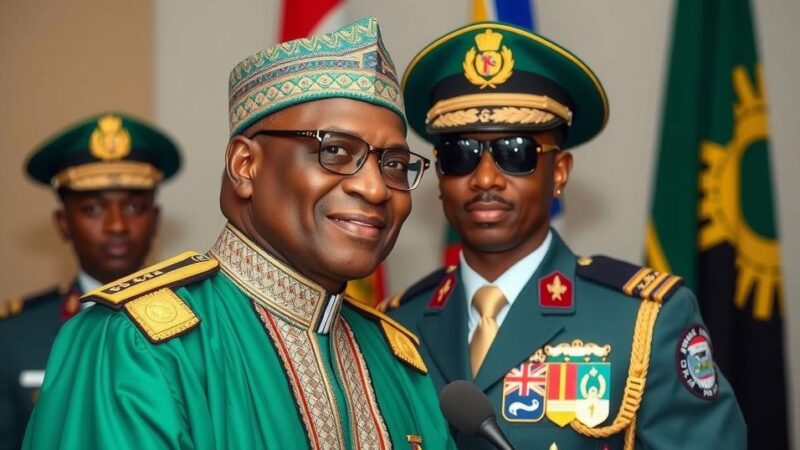Ethiopia inaugurated Ambassador Taye Atske Selassie as its new president after President Sahle-Work Zewde’s term ended. Taye, formerly the Foreign Affairs Minister, assumes office during a period of diplomatic tension with Somalia, primarily due to Ethiopia’s recent agreement with Somaliland, which has led to disputes over territorial integrity and sovereignty recognition. Somalia has also ruled out the participation of Ethiopian forces in upcoming security missions.
Ethiopia formally inaugurated a new president on Monday as Ambassador Taye Atske Selassie assumed the presidency following the conclusion of President Sahle-Work Zewde’s term. The ceremony took place during a joint session of the People’s Representatives and the House of Federation, attended by Prime Minister Abiy Ahmed and other dignitaries. President Taye, previously serving as the Minister of Foreign Affairs, was sworn in for a four-year term as the ceremonial head of state, a role distinct from the Prime Minister, who exercises actual governmental authority. Taye Atske’s elevation to the presidency coincides with heightened tensions between Ethiopia and Somalia. This discord stems primarily from Ethiopia’s recent covert Memorandum of Understanding with Somaliland, granting Ethiopia a foothold of 20 kilometers to the Red Sea while simultaneously recognizing Somaliland’s sovereignty. This has incensed officials in Mogadishu, who demand the withdrawal of the MoU and have rejected the inclusion of Ethiopian forces in the new African Union Support and Stabilization Mission (AUSSOM) in Somalia, which is set to commence in January 2025. During his first address, President Taye outlined the federal government’s plans for the fiscal year amid these ongoing diplomatic challenges.
The appointment of the new president of Ethiopia occurs within a backdrop of complex regional dynamics characterized by tension between Ethiopia and Somalia. The previous administration under President Sahle-Work Zewde faced various challenges concerning relations with neighboring nations, particularly regarding territorial integrity and claims. The conflict is exacerbated by Ethiopia’s relationships with regions like Somaliland, which claims independence from Somalia. The formalities of governance in Ethiopia assign the president a ceremonial role, with effective legislative and executive powers held by the Prime Minister. As Taye takes office, his administration is expected to navigate these domestic and international challenges while maintaining stability within the region.
In summary, the commencement of Taye Atske Selassie’s presidency marks a significant moment for Ethiopia amid pressing geopolitical tensions with Somalia. His administration will not only have to manage its internal governance but also engage in ongoing negotiations with Somalia concerning territorial disputes and diplomatic relations. The future actions taken regarding the Memorandum of Understanding with Somaliland will likely shape the bilateral relationship between Ethiopia and Somalia, as well as influence regional stability.
Original Source: www.garoweonline.com







